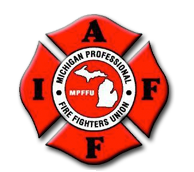| 2024 Candidate For Statewide Offices Questionnaire |
|
MPFFU
|
|
|
|
|
| Member Resources |
|
|
- Home
- Member Resources
- Member Home
- Endorsement Questionnaire
- Data Analysis Form
- Presidents Resources
- Retirement Guide For Michigan Firefighters and Police Officers
- IAFF Oath of Office
- Geographical Information System (GIS)
- Documents Required for a Municipal Financial Analysis
- EBoard Member Form
- What To Do (Problems & Questions)
- Legislative Overview
- The Union's Role in Employee Discipline Cases
- How to Run a Union Meeting Effectively and Efficiently
- Manual of Common Procedure and Related Subjects
- MPFFU EX BD Meeting Minutes
- MPFFU Reports and Minutes
- MPFFU Convention Transcripts
- Affiliate Info
- Contracts
- Important Laws
- Legislation/Politics
- Members Registered for this website
- PSO
- Collective Bargaining
- Officers & Staff
- Message Board
- Constitution/Bylaws
- Committees
- Events Calendar
- Pay Dues Online
- Login
- About Us
- JOB Postings
- Portage FD Hiring Assistant Fire Chief
- Southfield Hiring FireFighter Paramedics
- City of Southfield: Paramedic to Fire Fighter
- Kentwood Fire Dept is Now Hiring
- Livonia Paramedic Cadet Program - Get Paid while you attend FF Classes
- Leland Township Now Hiring-Apply by July 7th
- Clinton Township Now Hiring
- Livonia Fire Department is Hiring!
- Saline Area Fire Dept Now Hiring
- Oxford Now Taking Applications
- Calendar
- How to Be a Fire Fighter & Other Info
- Garrity Forms & Weingarten Rights
- LODD Resources
- Local Union Contracts and Census Data
- News for Alumni Members
- Safety & Health Committee
- MPFFU Committee & Executive Board Expense Form
- MPFFU ONLINE CLOTHING STORE
- IAFF Candidate Questionaire for Federal Candidates
- 2024 Candidate Questionnaire

